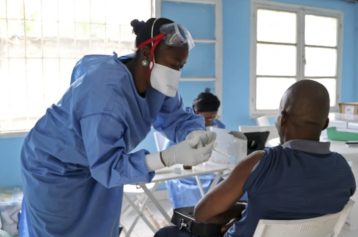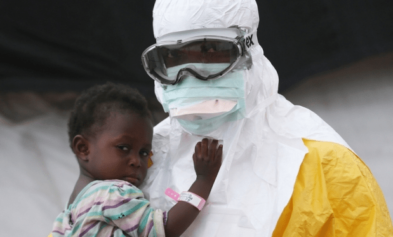
However, some lawyers, epidemiologists and even health organizations have argued that the new regulations could infringe on the civil liberties of travelers, as it allows CDC authorities to screen and detain people with little to no due process or informed consent, according to The Atlantic.
There’s no doubt the CDC must always be one step ahead to prevent the spread of communicable diseases like Ebola, the flu or measles, but experts are concerned that the agency, and the powers that govern it, may have overstepped their boundaries this time.
“They’re giving themselves the benefit of the doubt,” said Jennifer Nuzzo, an epidemiologist at the UPMC Center for Health Security, who also co-authored of a recent paper criticizing the CDC’s proposed rule. “I don’t worry about the CDC. I worry about people above them making them do things they don’t want to do because they’ve given themselves these broad powers. Those powers will make their jobs easier, until they don’t.”
According to Regulations.gov, provisions of the health agency’s new regulations include up-to-date definitions of what are considered to be “public health emergencies,” new regulatory language defining the CDC’s implementation of noninvasive public health”examinations at U.S. ports and other locations, and proposed changes to afford due process to people who are served with a federal public health order for isolation or quarantine.
In the event that the CDC apprehends a traveler suspected to be ill, the new rules would allow the agency to detain or isolate that individual for up to 72 hours while they await a medical review. The newly proposed regulations would also expand these enforceable powers to any “communicable infectious disease,” utilizing a broader list of warning symptoms to identify people who may be ill.
The agency had good reason to implement this provision, however, as the current list of warning symptoms does not include those for known diseases like MERS and Ebola, The Atlantic reported. Still, experts believe the CDC could be sacrificing travelers’ civil liberties for the sake of flexibility and expediency in preventing communicable diseases.
“The CDC is trying to equip itself with sufficient flexibility to respond to diseases we’ve never heard of, in a way where it doesn’t have to revisit these rules every few years,” said James Hodge Jr., professor of public health law and ethics at Arizona State University. “[However], the rule allows the CDC to move on somebody based on some belief that they might pose some amorphous risk to others. That’s not a standard that survives constitutional scrutiny.”
A number of ethics issues arise when examining the agency’s new regulations in depth. For example, the CDC has the power to detain travelers indefinitely before considering whether to quarantine them. Though the agency promises due process, it doesn’t provide provisions for legal counsel if detained individuals can’t afford an attorney. Moreover, the new rule gives the CDC ultimate authority to perform medical screenings and treatments without a person’s consent.
“There are really basic due process steps that could be put in place that would not undermine the CDC’s powers,” Alexandra Phelan of Georgetown University said. “That would put in checks and balances so that when the powers are exercised, it’s done in a way that respects civil liberties.”
Experts also have pointed out the potential drawbacks of quarantining suspected ill travelers. During the Ebola outbreak, the CDC screened more than 38,000 people flying into the U.S. and then monitored over 10,000 people over the course of 21 days, according to The Atlantic. Still, they caught not one case of the infectious disease.
Nuzzo emphasized that with a disease like Ebola, the practice of isolating those thought to be sick creates the false notion that monitoring the disease will mitigate the threat of it entering the country, which isn’t always the case. She said quarantines have the potential to exacerbate fear and public distrust, while also creating severe stigma.
Such was the case of two public health workers and a family of six Liberian immigrants who were quarantined in Connecticut in 2014, The Atlantic reported. Although none of them had been exposed to the Ebola virus or posed a public health threat, authorities remanded them to their homes for weeks at a time.
“The state failed to provide these individuals with food or other basic necessities and failed to inform some that they had the legal right to challenge their quarantine orders in court,” wrote Emma Roth and Carl Edwards of Yale Law School, who represented them. “To this day, Liberian Americans in Connecticut experience shame and stigma as a result of wrongly being labeled a threat to public health.”
Although the CDC’s proposed regulations were well intended to stop the spread of infectious diseases, it could ultimately cost travelers their constitutional liberties.


